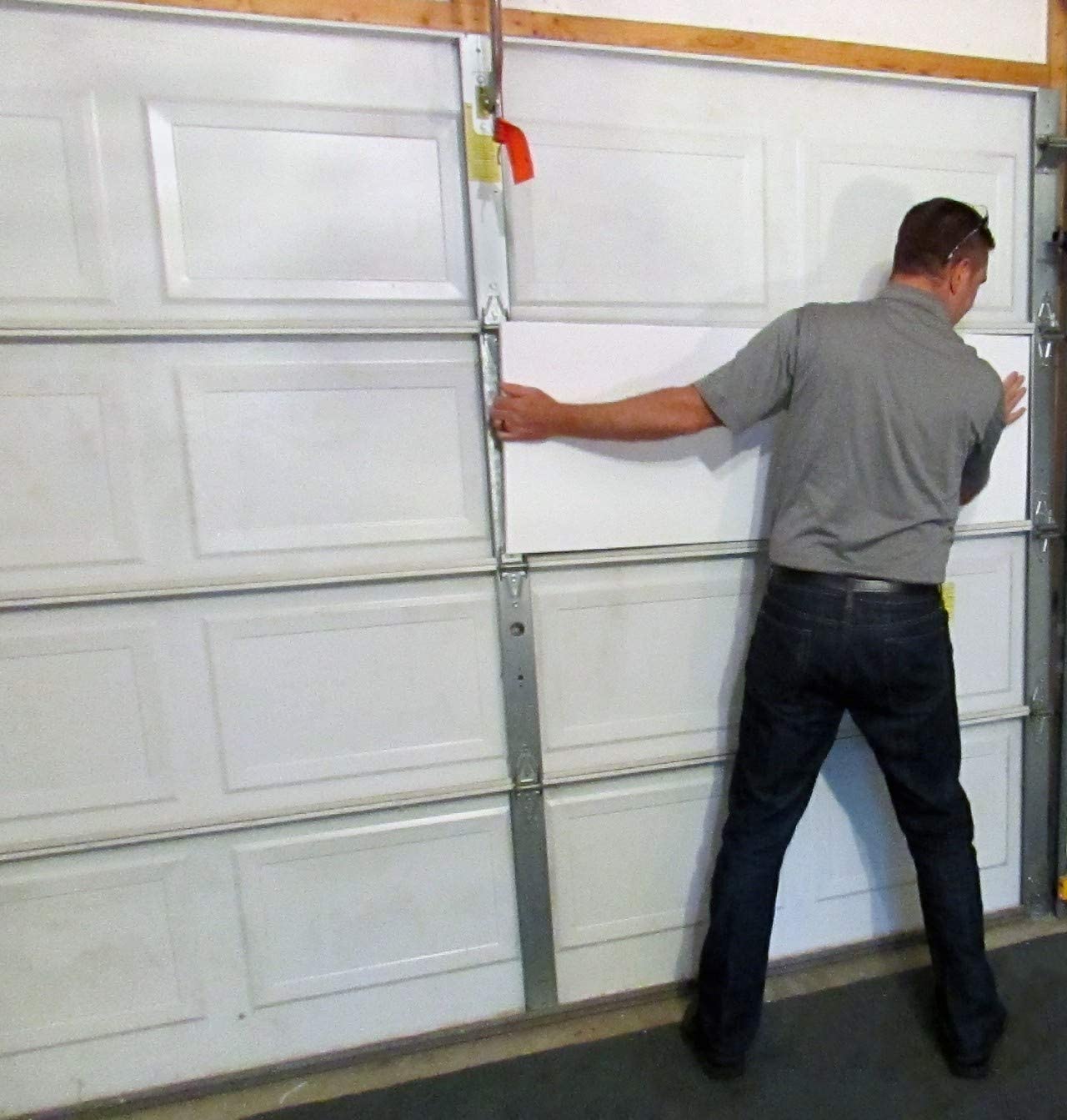 Posted On
Posted On
Garage Door Insulation: Is It Right for You?
 Posted On
Posted On
Does your garage still seem chilly when you leave for work in the morning? Even with the heating on, can you notice winds in any area of your house? Do you want to increase the safety and value of your home while reducing your energy costs? These are all things that insulated garage doors may aid with. In this article, we’ll examine the operation of garage door insulation, the costs associated with doing it yourself or engaging a specialist, and whether it’s a good idea for you.
Garage Door Insulation vs. Non-Insulated Garage Door
Your garage door insulation is a significant barrier between the interior of your house and the outside environment. There is no extra material applied to a non-insulated garage door to form a barrier from heat and cold. It’s like constantly keeping a window open.
Due to this, maintaining a pleasant climate in your garage and maintaining a steady interior temperature may be challenging. In contrast, the material is inserted between the door panels of an insulated garage door to offer that extra barrier.
Garage Door Insulation Varieties
Homeowners have a variety of material alternatives when it comes to insulating automobile garage doors. The most prevalent kinds of garage door insulation materials are listed below.
Fibreglass
Since it is affordable, strong, and simple to install, fibreglass is a common choice for weather stripping. Fibreglass insulation is available in premade rolls that may be trimmed to match the size of your garage. You may also purchase loose bundles of fibreglass to insulate attics and roofs.
Cellulose
Another widely used substance for garage insulation is cellulose, which is made of recycled plant material and has been treated to withstand fire. Since it is available in a loose form that you can lay almost anywhere, cellulose is quite simple to install. In addition to being fire and moisture-resistant, cellulose is also pest and rodent resistant.
You must complete the walls of your garage before putting in cellulose since it generally fits loosely. Before patching the hole to seal it, you may drill a tiny hole in the wall and blast the cellulose.
Rigid Foam
Due to its excellent R-value and insulating flexibility, rigid foam insulation is a superb option. Since the firm foam is suitable with almost all wall materials, you may trim foam panels to meet any garage’s specifications. To add further insulation, you may insert rigid foam on the rear of your garage door panels.
In addition to being quite effective at reducing noise, rigid foam is also relatively inexpensive compared to other materials. The biggest drawback is that the foam may be eaten by insects and other pests, which reduces its effectiveness. Cutting panels over wiring and plumbing could be challenging as well.
Spray Foam
Spray foam is a viscous fluid that hardens and forms an airtight seal, as the name suggests. The R-value of spray foam is relatively high relative to how light it is. Additionally, it has excellent resistance to fire, dampness, and pests. For most garages, spray foam could be excessive, but turning your garage into an extra room works wonderfully.
Panel Doors
Insulation panels are very useful for insulating pre-existing garage doors. The benefit of using door panels is that you can purchase and set them up independently without needing technical expertise. You may also cut door panels to establish air seals between the door and the ground.
Garage Door Insulation Advantages
There are various advantages to installing new garage door insulation. Here are a few examples.
Lower Energy Bills
Energy savings are the top justification for replacing your garage door insulation. Houses lose a lot of heat through their garage doors. Without insulation, your furnace or air conditioner will have to work harder to maintain a pleasant interior temperature.
Comfortable Interior
Despite being famous for its harsh winters, Colorado also has occasional scorching days in the summer. The air or heat may only be able to keep your house comfy with enough garage door insulation.
Exterior Seal
Most individuals keep their vehicles, bicycles, tools, equipment, and other items in their garages. In your garage, extreme heat or cold might harm these things. For instance, low garage temperatures might deplete your car’s battery or cause your tyres’ air pressure to drop. Extreme heat may lead to the formation of mould on the walls as well as the fading and cracking of paint.
Durability
Whether from regular wear and tear, bad weather, or mishaps, the standard garage door endures a lot of punishment during its lifespan. Blown-away debris and pebbles from solid winds may also cause dents and scrapes.
Reduced noise
Noise reduction is an advantage of insulating panels that are often overlooked. Noise may enter via leaks and holes between your door and the outside. Protecting your garage doors might help keep the inside of your house quiet if you live next to a busy street or area of town.
Summary
Your garage door gains an extra layer of toughness and security thanks to insulation. The garage can stay in a constant condition if your garage door is well-insulated, often saving you money on energy bills. The environment also benefits from the effectiveness of this foil board installation. Additionally, garage door insulation may help protect your garage and its contents against intruders and poor weather.






